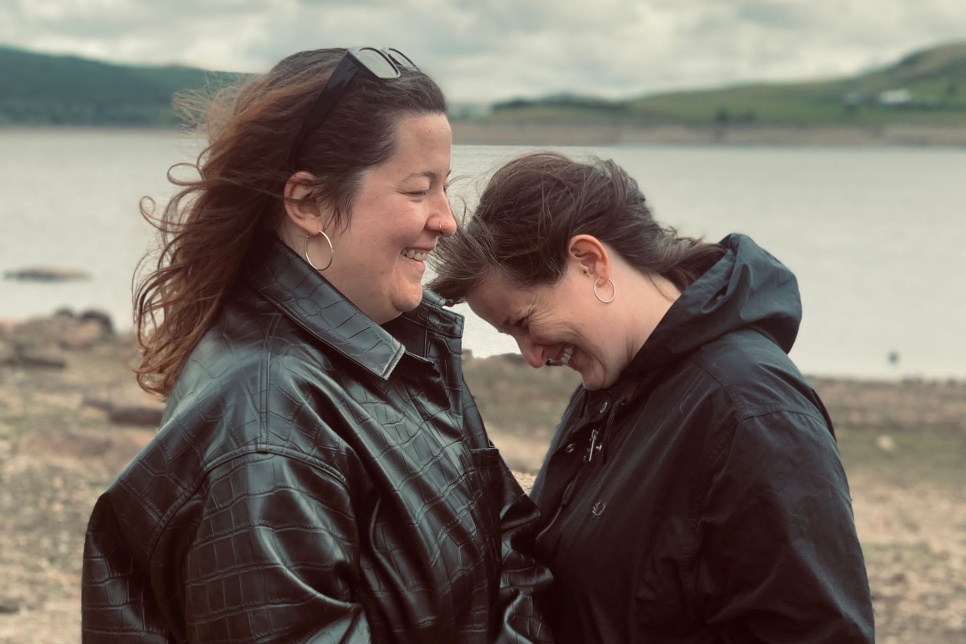When Llais y Lle (Voice of Place) was first launched in 2023, the aim was to encourage the development of creative ways to use and promote the Welsh language. Twelve months on, nine projects have brought the language to life in innovative ways in communities across the country.
Einir Sion, Welsh Language Enabler at the Arts Council reflects on successes of the first twelve months of Llais y Lle. "This was the first time we tried to combine community work and promote the Welsh language in this way – the enthusiasm and the variety of work that has come out of all the projects has exceeded our expectations and has inspired individuals and communities all over Wales.”
One Llais y Lle project which has created an impact is ‘We no longer talk'. This initiative has brought communities from the north and south together to look at their relationship with the Welsh language through a creative lens. Led by Rhiannon White, Artistic Director at Common Wealth and artist Ffion Wyn Morris, the project looks to challenge assumptions about the Welsh language in both areas.
The project is based on comparing how attitudes and access to the language differ based on social factors. Rhiannon and Fion's backgrounds on one hand are very similar. Both were born and brought up on council estates, Ffion in Bethesda, Gwynedd and Rhiannon in St Mellons, Cardiff. But, due to geography and demography the two had very different relationships with the Welsh language. Rhiannon doesn’t speak Welsh and Ffion is a first language speaker, their access – or lack of it – to the language depended entirely on where they were born.
Rhiannon explains that they wanted to promote understanding and create an interest among people to learn more about the Welsh language, its history and what it means to speak it with a series of creative workshops. She admits that before she started the work, she, like many of her Cardiff peers, believed that only middle-class people could speak Welsh and that they weren’t really affected by the same social challenges as she had faced growing up. So, visiting areas in the north and meeting people in those communities was a real eye-opener for her.
"I didn't think poverty affected Welsh-speakers – I had never heard the language spoken in Cardiff as a child. I had no idea communities like Bethesda existed – communities facing the exact same problems as under resourced communities, like where I grew up."
Rhiannon White
Rhiannon explains: "I had no idea that there had been a struggle to preserve the language, to secure rights for people to use it, and why the decline had been so dramatic in industrial areas of the south. I’ve learnt now that similar factors are still at play in areas of the north. None of this was taught to us at school and almost as a result I wasn't really interested in learning Welsh either."
With much of the engagement in both communities now complete, Rhiannon and Ffion are bringing everything together and looking at how to create a performance based on all the material they’ve gathered. The culmination of 'We no longer Talk' will be the screening of a film they have created along with a Q&A session with the artists who have been involved.
For Einir Sion ‘We No Longer Talk’ captures the reason why Llais y Lle was established in the first place. "Like many of the other projects, Rhiannon and Ffion have really explored a community's relationship with the Welsh language and have managed to do it in a way which will create a legacy – this is important part of Llais y Lle. Chatting to them shows the profound impact the work has had on them personally and also how it has changed attitudes towards the Welsh language – awakening a curiosity about the language and its history.”
With Llais y Lle 2023 drawing to a close, new projects for the 2024 programme will be developed and implemented. The hope is again that by sharing experiences, learning and creativity that people can appreciate and consider language in relation to a community and ultimately play a part in raising awareness and creating a positive attitude to the Welsh language.

